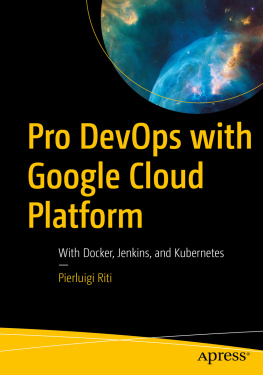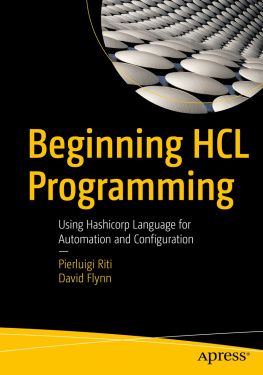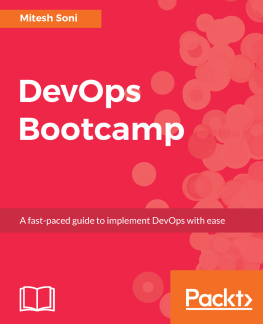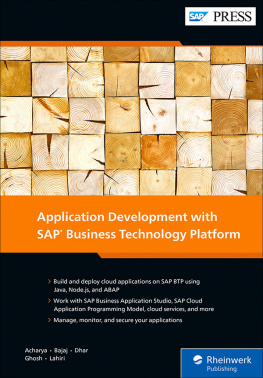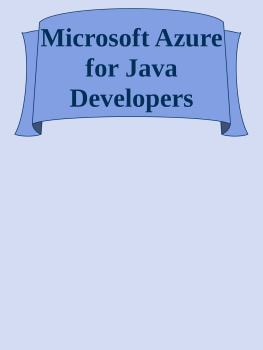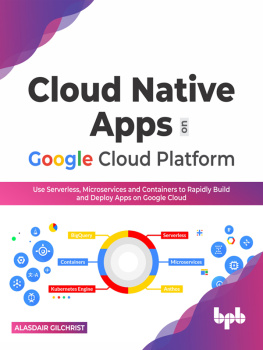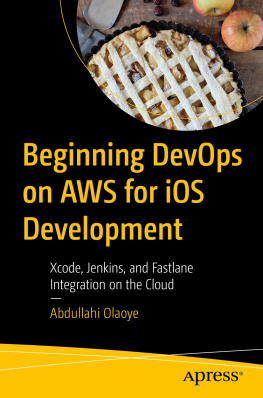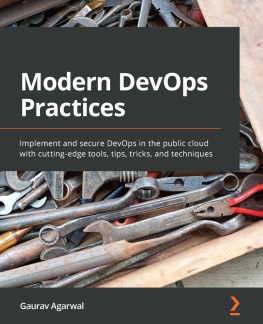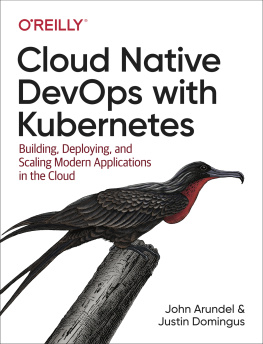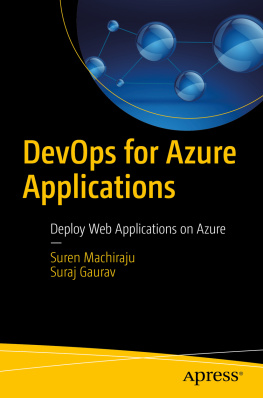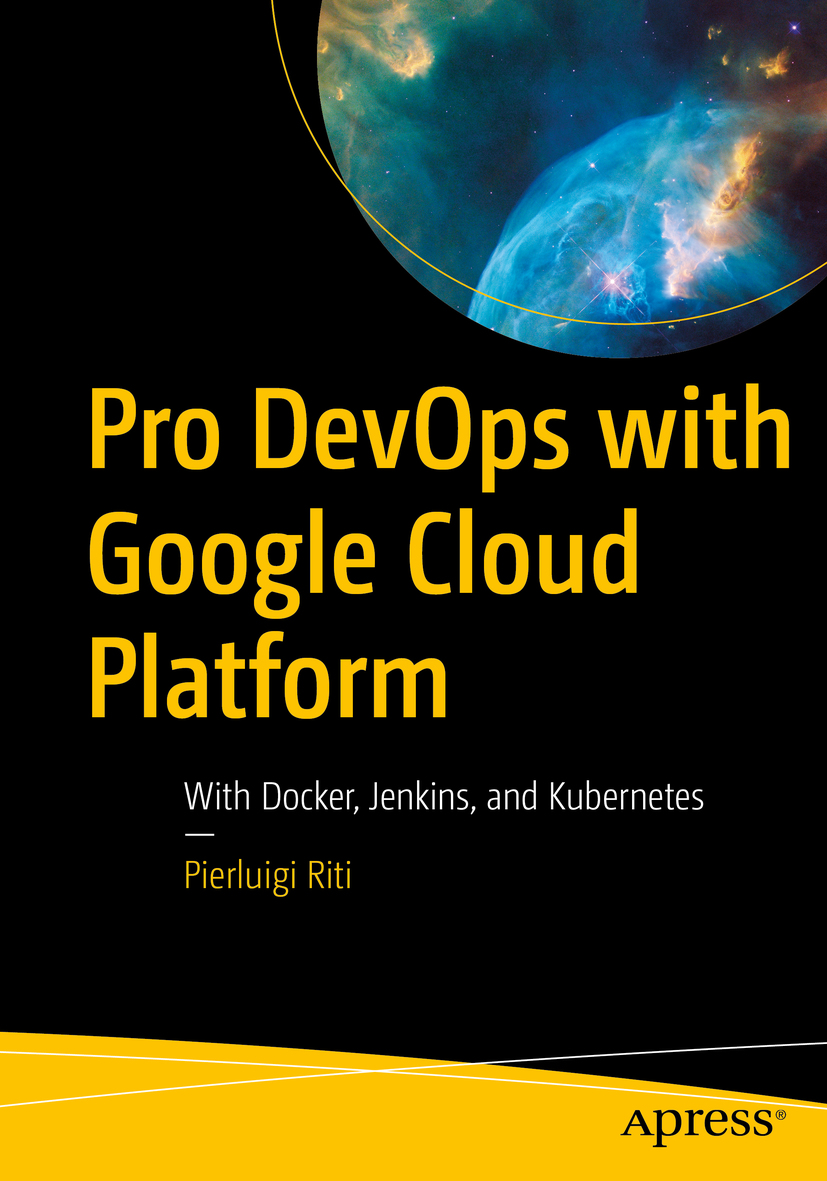Pierluigi Riti
Pro DevOps with Google Cloud Platform With Docker, Jenkins, and Kubernetes
Pierluigi Riti
Mullingar, Westmeath, Ireland
Any source code or other supplementary material referenced by the author in this book is available to readers on GitHub via the books product page, located at www.apress.com/9781484238967 . For more detailed information, please visit www.apress.com/source-code .
ISBN 978-1-4842-3896-7 e-ISBN 978-1-4842-3897-4
https://doi.org/10.1007/978-1-4842-3897-4
Library of Congress Control Number: 2018961422
Pierluigi Riti 2018
This work is subject to copyright. All rights are reserved by the Publisher, whether the whole or part of the material is concerned, specifically the rights of translation, reprinting, reuse of illustrations, recitation, broadcasting, reproduction on microfilms or in any other physical way, and transmission or information storage and retrieval, electronic adaptation, computer software, or by similar or dissimilar methodology now known or hereafter developed.
Trademarked names, logos, and images may appear in this book. Rather than use a trademark symbol with every occurrence of a trademarked name, logo, or image, we use the names, logos, and images only in an editorial fashion and to the benefit of the trademark owner, with no intention of infringement of the trademark. The use in this publication of trade names, trademarks, service marks, and similar terms, even if they are not identified as such, is not to be taken as an expression of opinion as to whether or not they are subject to proprietary rights.
While the advice and information in this book are believed to be true and accurate at the date of publication, neither the author nor the editors nor the publisher can accept any legal responsibility for any errors or omissions that may be made. The publisher makes no warranty, express or implied, with respect to the material contained herein.
Distributed to the book trade worldwide by Springer Science+Business Media New York, 233 Spring Street, 6th Floor, New York, NY 10013. Phone 1-800-SPRINGER, fax (201) 348-4505, e-mail orders-ny@springer-sbm.com, or visit www.springeronline.com. Apress Media, LLC is a California LLC and the sole member (owner) is Springer Science+Business Media Finance Inc (SSBM Finance Inc). SSBM Finance Inc is a Delaware corporation.
To Mara, Nicole, and Mattia. My life is empty without you.
Introduction
Cloud technology is increasingly present in our daily lives. The intent of this book is to introduce Google Cloud Platform, of cloud computing services, with an eye to DevOps practices.
DevOps is currently a hot commodity in the information technology (IT) field, and every day, a new company begins to adopt its practice. The cloud is a natural environment for DevOps, because in the cloud environment, such practices as infrastructure as code and continuous delivery can be adopted more efficiently. Thus, the cloud is the natural environment in which DevOps can grow and be increasingly effective.
In 2003, Google created Site Reliability Engineering (SRE). This represented a new approach to the continuous large-scale release of product features. SRE shares many concepts with DevOps. I use Google Cloud Platform, because it is one of the most highly recommended by Gartner, particularly its use in infrastructure development. As with the Gartner Magic Quadrant, Google offers strong network management, and with the integration of Kubernetes, it is ideal for developing container and infrastructure solutions. By adding code, Google Cloud Platform offers a complete solution for creating the deployment management for release of infrastructure. In addition, Google Cloud Platform has one of the highest levels of application programming interface (API) available in the cloud environment.
All the code in this book can be accessed from the related GitHub site. Please feel free to read that code and alter it for your personal use.
Acknowledgments
My thanks go to David Gonzalez, for the amazing feedback he provided during the technical review of the text. Another big thank you to Steve, Matthew, and Mark, for their support and help in completing this book.
Table of Contents
About the Author and About the Technical Reviewer
About the Author
Pierluigi Riti
has more than 20 years of extensive experience in the design and development of different scale applications, particularly in the telecommunications and financial industries. He is a freelance consultant, with specialization in DevOps, the cloud, and security. He has quality-development skills in the latest technologies, including Java, J2EE, C#, F#, .NET, Spring .NET, EF, WPF, WF, WinForm, WebAPI, MVC, Nunit, Scala, Spring, JSP, EJB, Struts, Struts2, SOAP, REST, C, C++, Hibernate, NHibernate, Weblogic, XML, XSLT, Unix script, Ruby, and Python. He is the author of Practical Scala DSL , also published by Apress. He can be contacted via his LinkedIn profile page at www.linkedin.com/in/pierluigi-riti/ .
About the Technical Reviewer
David Gonzalez
is a DevOps engineer who has written three books about DevOps and microservices. He works as a consultant, helping large companies to advance their systems development, by tweaking related software processes and tools. David is also a Google Developer Expert ( https://developers.google.com/experts/people/david-gonzalez-gonzalez ) in Kubernetes (Google Container Engine) and a member of the Node.js foundation, working on security in third-party npm packages. In his free time, he enjoys cycling and walking with his dogs in the green fields of Ireland.
Pierluigi Riti 2018
Pierluigi Riti Pro DevOps with Google Cloud Platform https://doi.org/10.1007/978-1-4842-3897-4_1
1. Introduction to DevOps
Pierluigi Riti
(1)
Mullingar, Westmeath, Ireland
DevOps, DevOps, DevOps, there is hardly a day in our professional lives that we dont hear that mantra. The reason is simple: by adopting DevOps practices, a company can reduce time to market, the time necessary to identify a new software or other requirement and to put it in place.
In this chapter, I introduce some of the advantages of DevOps and the changes that must be made to accommodate and promote their use most profitably by a company.
What Is DevOps?
The term DevOps is derived from the combination of two words: developer and operations. DevOps is used to define a movement born of the need for reducing barriers between the development and operations teams of a company. The goal of DevOps is to reduce time to market. This means adopting DevOps practices, to reduce the time needed, from the identification of a new requirement to the time it goes live for customers. The DevOps journey introduces such practices as continuous integration and continuous delivery, which help to reduce time to market and produce better quality software.

